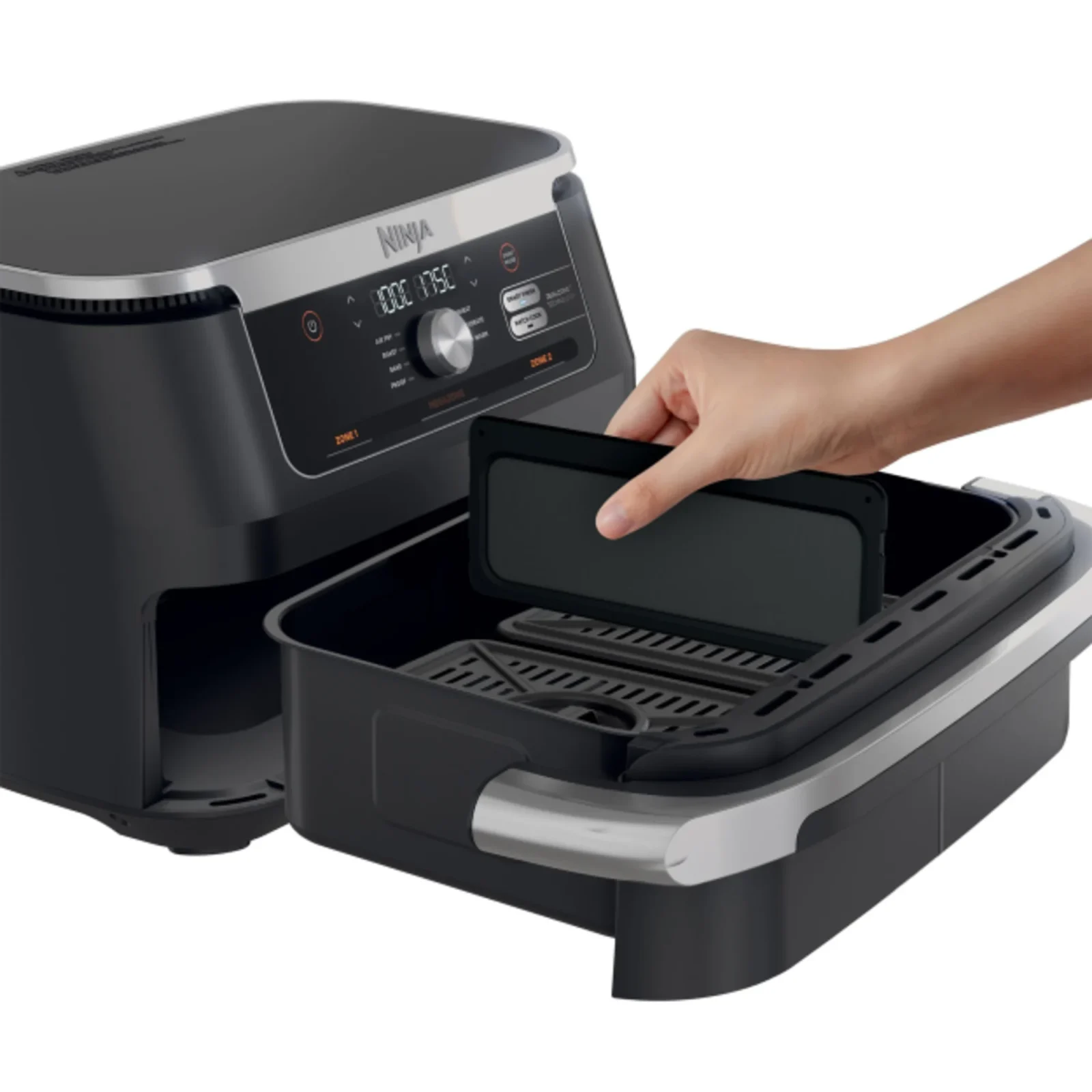Why Does My Ninja Air Fryer Smell Like Plastic?

Air fryers have become indispensable in many kitchens, offering a healthier way to enjoy fried foods with minimal oil. The Ninja Air Fryer, known for its reliability and versatility, is popular among consumers. However, a common issue some users encounter is an unpleasant plastic smell during the initial use of their Ninja Air Fryer. This article delves into the reasons behind this odor, whether it poses any risks, and how to eliminate it effectively.
Contents
Why Does My Air Fryer Smell Like Plastic?
The Source of the Plastic Smell
You’re not alone if you’ve noticed a plastic smell emanating from your Ninja Air Fryer, especially during its first few uses. This phenomenon is common with many new air fryers and other kitchen appliances. The odor can be unsettling, but understanding its source can provide peace of mind.
1. Manufacturing Residue:
During the manufacturing process, various components of the air fryer, such as plastic housing, non-stick coatings, and electrical components, are subjected to high temperatures. This process can leave behind residual chemicals and oils that, when heated, emit a plastic-like odor. This smell is particularly noticeable when the appliance is used for the first time.
2. Heating of Plastic Components:
The Ninja Air Fryer, like many other appliances, contains plastic components that are essential for its structure and function. When these parts are heated, especially for the first few times, they can emit a plastic smell as they adjust to the high temperatures. This is usually temporary and diminishes with regular use.
3. Non-stick Coating:
The non-stick coating inside the air fryer’s basket and tray may also contribute to the odor. While these coatings are designed to be heat-resistant, they can emit a faint smell during the first few uses, particularly if the air fryer is preheated at a high temperature.
Is the Plastic Smell Dangerous?
The initial plastic smell in your Ninja Air Fryer, while unpleasant, is generally not dangerous. It’s typically a result of the manufacturing process, and the materials used in reputable brands like Ninja are designed to withstand high temperatures safely. However, it’s essential to ensure the smell dissipates after a few uses. If the smell persists beyond the first few uses or becomes more intense, it could indicate an underlying issue that needs attention.
How to Eliminate the Plastic Smell
If the plastic smell from your Ninja Air Fryer is bothering you, there are several steps you can take to minimize or eliminate it:
1. Pre-Cleaning:
Before using your air fryer for the first time, it’s crucial to thoroughly clean all removable components. Remove the basket, tray, and any other detachable parts, and wash them with warm, soapy water. This helps remove any manufacturing residues or dust that may contribute to the odor.
2. Initial Burn-In:
Perform an initial “burn-in” cycle before cooking any food. This involves running the air fryer at a high temperature (around 400°F) for 15-20 minutes without any food inside. This process helps to burn off any residual chemicals or oils that might be causing the smell. It’s a good idea to do this in a well-ventilated area or near an open window to allow the odor to dissipate.
3. Using Vinegar and Lemon:
If the smell persists after the burn-in process, place a small bowl of white vinegar or a mixture of vinegar and water inside the air fryer basket. Run the air fryer at a low temperature (around 300°F) for 10-15 minutes. Vinegar is a natural deodorizer that can help neutralize odors. Adding a few slices of lemon can also enhance the effect and leave a fresh scent.
4. Repeat Use:
Often, the plastic smell will naturally diminish with continued use. After a few cooking sessions, the materials inside the air fryer should become more stable, and the smell should disappear. Regularly using the air fryer and keeping it clean will also help in this regard.
5. Avoiding Overcrowding:
Overcrowding the air fryer basket can sometimes trap odors and lead to uneven cooking. Ensure that there is adequate space for air circulation, which can help reduce any lingering smells.
When to Be Concerned
While the plastic smell is typically harmless, there are instances where you should take additional steps:
Persistent Smell:
If the plastic smell does not diminish after several uses and cleaning cycles, it may indicate a problem with the appliance. In such cases, it’s advisable to contact Ninja customer support or the retailer where you purchased the air fryer. Persistent odors could be a sign of a manufacturing defect or an issue with the electrical components.
Burning Smell:
If the smell changes from plastic to burning or electrical, immediately stop using the air fryer and disconnect it from the power source. A burning smell could indicate a more serious issue, such as a malfunctioning heating element or faulty wiring, which requires professional inspection.
Visible Damage:
Regularly inspect your air fryer for any signs of physical damage, such as cracks in the plastic housing or exposed wires. Such issues can contribute to unusual smells and pose safety risks. If you notice any damage, discontinue use and consult with the manufacturer or a qualified technician.
Experiencing a plastic smell with your new Ninja Air Fryer is not uncommon and is usually temporary. By understanding the source of the odor and following the steps outlined above, you can effectively eliminate the smell and enjoy the many benefits of air frying without concern. However, it’s crucial to remain vigilant and address any persistent or unusual smells promptly to ensure the safety and longevity of your appliance.
Your Ninja Air Fryer is a powerful tool in the kitchen, and with proper care and attention, it will provide you with delicious, healthier meals for years to come.







